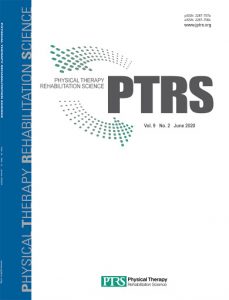Publications

Effects of a wellness spa intervention on muscle tension and electroencephalographic activity in community-dwelling adults
Authors: Jong-Geun Kim 1, Ha-Na Yu 2, Jeongwoo Jeon 3, 4, Seungho Park 3, Yunseo Noh 3, Sangwoo Jung 5
Affiliations:
- Department of Golf and Leisure, Daegu Technical University, Daegu, Republic of Korea
- Healthcare & Spa Industry Promotion Agency, Asan-si, Chungcheongnam-do, Republic of Korea
- Department of Physical Therapy, Sunmoon University, Asan-si, Chungcheongnam-do, Republic of Korea
- Digital Healthcare Institute, Sunmoon University, Asan-si, Chungcheongnam-do, Republic of Korea
- Industry-Academic Cooperation Foundation, Konyang University, Nonsan-si, Chungcheongnam-do, Republic of Korea
Journal: Physical Therapy Rehabilitation Science - June 2025, Volume 14, Pages 275-281 (DOI: 10.14474/ptrs.2025.14.2.275)
-
Field & Applications:
- Medical
- Treatment evaluation
- Complementary and Alternative Medicine
- Musculoskeletal health
- Psychology
Objective: This study aimed to quantitatively evaluate the effects of a wellness spa intervention on muscle tension and electroencephalographic (EEG) activity in healthy adults. The objective was to determine whether participation in a structured spa program promotes physical and psychological relaxation.
Design: Pre-post intervention study design.
Methods: Sixty healthy adults (23 males and37 females) residing in the community participated in a 6-week wellness spa intervention comprising 12 sessions. Each session consisted of hydrotherapy using a bade pool with varying water flow intensities. The upper trapezius muscle tension was assessed using the MyotonPRO, and EEG activity (theta, alpha, and beta) was recorded using a wireless frontal-channel device. Paired t-tests were conducted to compare the pre- and post-intervention values.
Results: Following the intervention, the logarithmic decrement values of the left and right upper trapezius muscles had significantly decreased (p < 0.01), indicating improved muscle elasticity. The EEG results showed a significant increase in alpha wave activity in males (p < 0.01) and theta wave activity in both males (p = 0.01) and females (p = 0.02). No significant changes were observed in beta wave activity.
Conclusions: The wellness spa intervention led to a measurable reduction in muscle tension and promoted relaxation of the central nervous system, as evidenced by the EEG changes. These findings suggest that spa-based wellness programs may serve as effective complementary strategies for enhancing the physical and psychological well-being of healthy adults.
Keywords: Spa intervention, muscle tension, electroencephalography
This study demonstrated that participation in a wellness spa program has beneficial effects on both muscle tension and EEG activity. The reduction in logarithmic decrement values of the upper trapezius suggests improved muscle elasticity and relaxation, indicating the potential of spa interventions to alleviate chronic muscular tension. Additionally, the observed increases in alpha and theta EEG activity support the psychological benefits of spa use, including enhanced relaxation and emotional stability. These findings highlight the potential utility of wellness spa programs as complementary approaches to promoting both physical and mental well-being. Future research should aim to confirm these outcomes in larger and more diverse populations and further explore the long-term effects of spa-based interventions.


